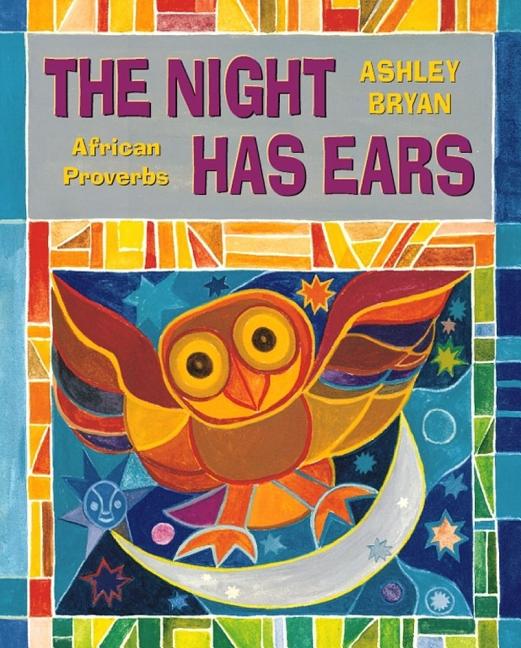Book Description
for The Night Has Ears by Ashley Bryan
From Cooperative Children's Book Center (CCBC)
In his introduction, Ashley Bryan tells us that he grew up hearing proverbs from his parents so they’ve always been a part of his life, as is common with many people. As a scholar of traditional literature, he began to collect proverbs he found in African sources and for this volume he has selected 26 from several cultural groups on the African continent. His selections are both culturally specific and universal: e.g. “Treat your guest as a guest for two days; on the third day, give him a hoe.” (Swahili) Some are a bit more mysterious and will inspire children to think about their meaning: “Never try to catch a black cat at night.” (Krahn) Each proverb is illustrated with a tempera and gouache painting that uses brightly colored geometric shapes outlined in white for a stained-glass effect. (Ages 5-9)
CCBC Choices 2000. © Cooperative Children's Book Center, Univ. of Wisconsin - Madison, 2000. Used with permission.


